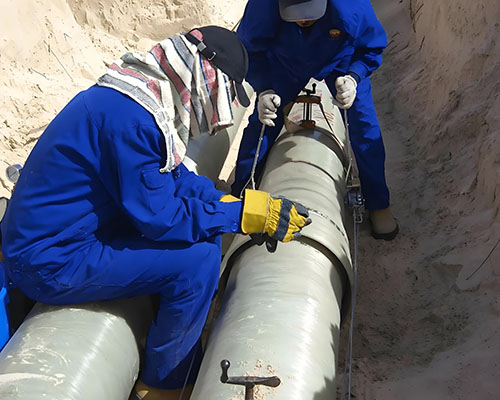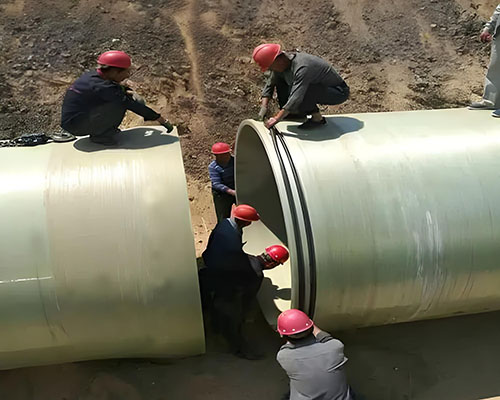GRP (Glass Reinforced Plastic) pipes offer numerous advantages that make them an excellent choice for industrial applications. Their unique combination of properties—stemming from the composite materials used in their construction—ensures they perform exceptionally well in a wide range of industrial environments. Here are the key advantages of using GRP pipes in industrial applications:

1. Corrosion Resistance
GRP pipes are highly resistant to a wide range of chemicals, including acids, alkalis, and salts. This makes them ideal for transporting aggressive and corrosive substances commonly found in industrial processes.Unlike metal pipes, which can corrode over time when exposed to harsh chemicals or saltwater, GRP pipes maintain their integrity, leading to longer service life and reduced maintenance costs.
2. Lightweight
GRP pipes are significantly lighter than traditional materials like steel or concrete. This reduces the need for heavy lifting equipment during installation and reducing labor costs and project timelines.
3. High Strength-to-Weight Ratio
Despite being lightweight, GRP pipes offer excellent mechanical strength, capable of withstanding high internal pressures and external loads. This makes them suitable for a variety of industrial applications, including those requiring high structural performance.
4. Low Thermal Conductivity And Insulation
GRP pipes have low thermal conductivity, meaning they do not easily transfer heat. This property helps maintain the temperature of the fluids being transported, reducing the need for additional insulation.
5. Long Service Life
GRP pipes are designed to last for decades, even in harsh industrial environments. Their resistance to environmental factors such as UV radiation, temperature fluctuations, and chemical exposure contributes to their long service life. It translates to lower replacement costs and fewer disruptions in industrial operations.

6. Low Maintenance
The corrosion resistance and durability of GRP pipes mean they require less maintenance compared to metal pipes, which often need regular inspections, coatings, or replacements due to corrosion or wear.
7. Versatility
GRP pipes can be manufactured in various sizes, shapes, and pressure ratings to meet the specific requirements of different industrial applications. They can also be tailored with special linings or coatings for additional protection.
8. Environmental Resistance
GRP pipes are resistant to UV radiation and can withstand extreme weather conditions without degrading. This makes them suitable for outdoor installations and long-term exposure to the elements.GRP pipes perform well in environments with high levels of pollution, salt, and moisture, such as coastal areas or industrial zones.
9. Hydraulic Efficiency
The smooth internal surface of GRP pipes reduces friction losses during fluid transport, enhancing flow efficiency and reducing pumping energy requirements.
10. Cost-Effectiveness
While the initial cost of GRP pipe may be higher than some traditional materials, its durability and low maintenance requirements reduce the frequency and duration of maintenance-related downtime, helping to save on the overall cost of industrial operations.
GRP pipes offer a multitude of advantages in industrial applications, from corrosion resistance and lightweight construction to high strength and long-term durability. These benefits make GRP pipes a excellent choice for industries seeking reliable, efficient, and cost-effective piping solutions.